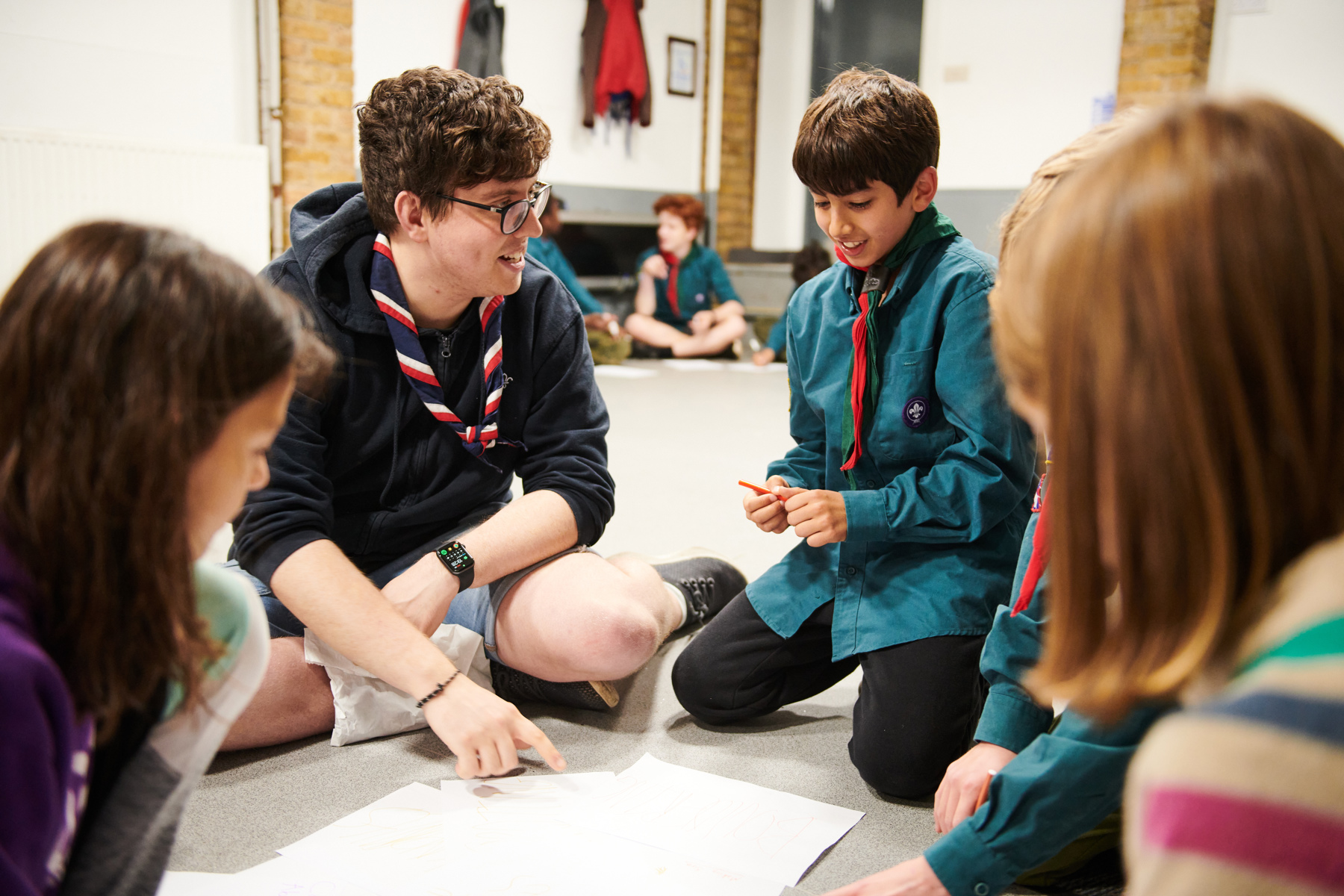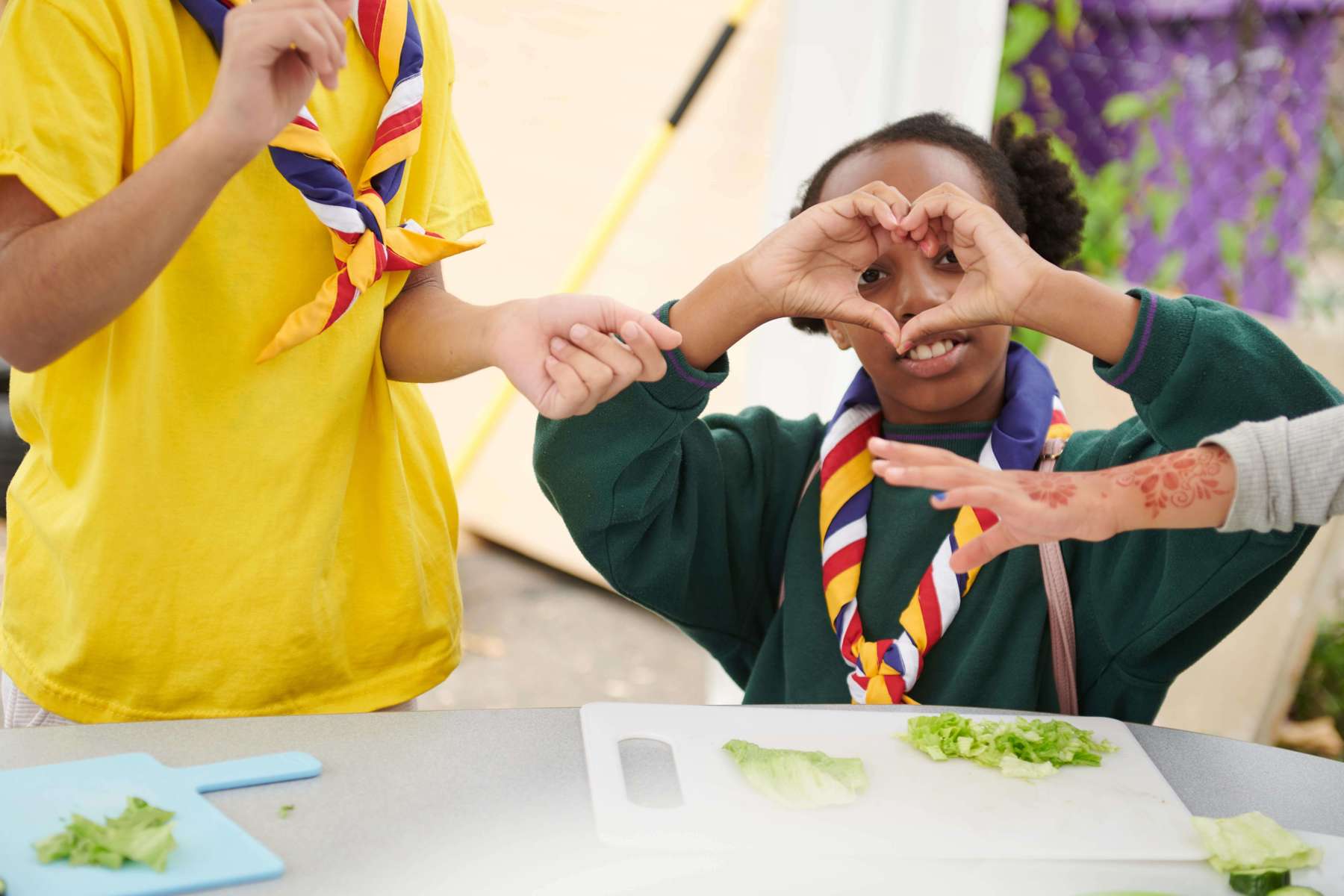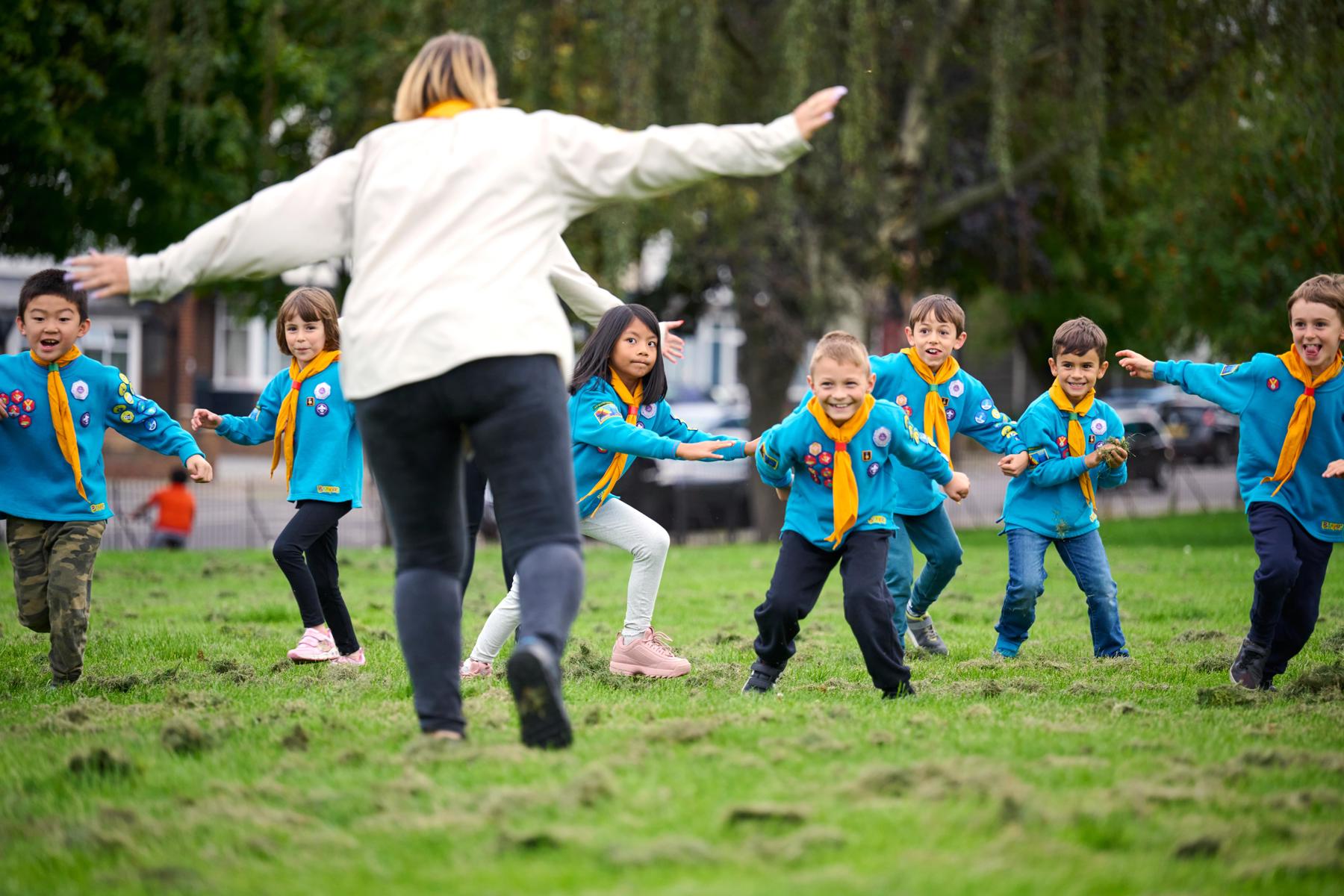Responding to conflicts: supporting young people and working for peace
At Scouts, young people are always our focus.
As volunteers, we give our time to help them gain skills to make sense of the world around them. We also support them to play their part as active citizens, for today and all our tomorrows.
Conflicts continue to dominate the news agenda. It’s a stark reminder of the challenging world we live in. This raises issues our young people may be dealing with or trying to understand.
In this blog, we aim to provide clarity and context on our role as Scouts (and volunteers) and to support our young people with a three-step process:
- Step 1: Raising awareness of global events and their impact.
- Step 2: Accepting responsibility for a better future.
- Step 3: Taking practical action to make it happen.
How Scouts might be affected
Conflicts take many forms, and the media doesn’t cover them all equally. Yet, many of our own members will have links with people and places affected. This could be through personal connections, school exchanges, family holidays or Scout trips. Let’s also remember that conflicts may also affect young people who live in, or who have recently settled in, the UK from these regions too.
How to use programme material
Incorporate programme ideas into your meetings in a way you find comfortable and fitting for the community you support:
- Explain to your Scouts that today we’re thinking especially about conflict they may have seen in the media.
- Point out that as Scouts we work for justice, peace and reconciliation – and for a better future for all. You will know best how to express this with your Scouts, depending on their ages.
- After an activity, try to spark a discussion (in a way that’s suitable for the ages of your Scouts), to encourage them to think what they can do to help.
- Stress that the Scout Movement is not a political organisation. We cannot take sides, nor allow ourselves to share propaganda
Our purpose is to help Scouts to express their feelings and to open their minds to the realities and consequences of conflict. We need to challenge short term thinking, hate and prejudice. We also need to show solidarity with people around the world who are the victims of conflicts.

Our role in supporting young people
In recent weeks many of our Scouts will have been exposed to the horrific news of innocent lives cut short, whether on social media or TV.
As our young people attempt to make sense of what they’ve seen and heard, we might take the view that these issues are too complex for us to do or say anything about. We might therefore choose to do nothing for fear of saying or doing the wrong thing. This is an understandable reaction.
However, as Scouts, we believe we have a part to play in creating a better world. We’re part of a worldwide Movement that promotes peace. It’s through our programme, close to home, where we can take action to make it a reality.
Practical support for you
We therefore want to support you as much as possible so you can help your young people coming to terms with these events, during your normal section meetings. To help we’ve pulled together some ideas and links to existing resources that you might find helpful. Take a look at our activities for helping to understand crises.
These programme activities are intended to help Scouts:
- Understand some of the impact of conflicts on themselves, on other young people and their families.
- Take part in practical activities which help this process.
- Play their part as citizens, increasing their awareness and understanding of their place in the world.
Part of a worldwide family working for peace
Let’s never forget that UK Scouts are a part of a worldwide family standing together for peace and against violence in all its forms.
National Scout Organisations throughout the world and The World Organization of the Scout Movement (WOSM), which UK Scouts are a part of, have responded to conflicts, wars and terrorist attacks by offering sympathy and support.
As UK Scouts, it’s important we play our role too – speaking up for peace and supporting our young people to understand the fundamental importance of global peace and understanding. As an educational movement, we have a duty to help Scouts come to terms with global events.
Together, we can help think about practical steps they can take as both individuals and as part of a global Scouts movement to make the world a more peaceful and safer place.

Some considerations around safety and sensitivity
Many young people will have been exposed to images in the media which are deeply upsetting. The short, medium and long term consequences of this are uncertain.
It may be that there are members who’ve lost loved ones, who have family in danger, or who are involved in any number of other ways. We should, of course, be especially careful here. Dealing with it at Scout meetings is challenging. It’s important therefore to:
- Acknowledge the emotional state of adults and young people, including the impact on home and social life for families and individuals.
- Allow people time and space when and where it’s needed.
- Remember that some volunteers may not wish or feel able to be directly involved in these activities.
- Where possible, try to make that it’s not the same adults who support this work every time.
- Recognise that the situation may act as a trigger to people, especially young people who are emotionally vulnerable. This may result in difficulties in behaviour and relationships.
Examples of how you may take a sensitive approach can include:
- Use moderate, balanced and empathetic language, avoiding accusations or expressions of anger or intolerance.
- Address and condemn all forms of hate speech, and not condemning or blaming those of a particular nationality, cultural or religious background.
- Arrangements could be made to express sympathy to those families known to us and directly affected by the incident.
- Remember the anniversaries of traumatic events as emotional moments that can be planned for and handled with sensitivity.
- View and read the media critically, and try to avoid trusting or sharing extreme or provocative statements.
- Avoiding inciting panic or fear.
- Believe in our role in educating young people for peaceful world.

In summary: A three-step process
The three-step process which we are trying to encourage is:
- Step 1: Raising awareness of global events and their impact.
- Using suitable activities to make the necessary points.
- Explaining the context to the Scouts.
- Step 2: Accepting responsibility for a better future.
- Encouraging discussion and debate with moderate and empathetic language.
- Step 3: Taking action to make it happen.
- Personal commitment.
- Reviewing at intervals to consider further action.
Thank you
Thank you to all our volunteers supporting this challenging work. You’re playing your part to creating a better, and more peaceful world.